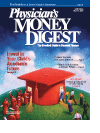ADDICTED TO TOBACCO
From the Wall Street Journal Editorial Page
So entertaining is the class actionKabuki theater currently showingin Madison County, Ill, that we hardlyknow where to begin.
On March 21, state Judge NicholasByron ruled against Philip Morris in aconsumer fraud case, ordering thetobacco giant to pay plaintiffs $10billion in damages. Furthermore, saidthe judge, Philip Morris had to post a$12-billion bond within 30 days if itwanted to appeal. When PhilipMorris countered that the bondrequirement would send it intoChapter 11, state politicos across thenation began to panic. Having longago factored all this settlementmoney into their budgets, the lastthing they want now is a tobaccocompany that goes out of business.
The reason is that the 1998 tobaccopact with 46 states—known as theMaster Settlement Agreement (MSA)—effectively made those states shareholdersin Big Tobacco Inc. Whatabout the public health concerns thatsupposedly motivated all these lawsuits?Well, states are putting most oftheir cigarette settlement cash towardthings like closing budget gapsor building roads and maintaininggolf courses. North Carolina has evenused some of its share to subsidize…tobacco growers.
The Centers for Disease Control(CDC) say that at a minimum, statesshould be devoting between 20% and25% of their settlement money totobacco prevention and cessation programs.Yet a detailed report from theCampaign for Tobacco-Free Kids foundthat only 4 states (Maine, Maryland,Minnesota, and Mississippi) are meetingthat minimum level. Only 19 statesare funding these programs at evenhalf of the CDC recommendation.
In short, the tobacco suits—likeasbestos suits and breast implantsuits—have always been about afresh, dependable source of revenueto fill state coffers and line lawyers'pockets. And for the past 5 years, thestates have acted to protect their vestedinterest. That's why Judge Byron'sbond requirement, which threatens tomake hamburger out of a cash cowlike Philip Morris, has them sweating.
Illinois alone stands to collectbetween $7.4 billion and $9 billion inMSA payments through 2025. Andothers know all too well that whathappens in Madison County mayreverberate through their own budgets.Vermont's attorney general fearshis state won't get money it has"already spent." New Jersey, Wisconsin,and many other states have issuedmunicipal bonds backed by moneythey expect to receive from tobaccocompanies. Which may be why JudgeByron's ruling prompted a sell-off andMoody's this week downgraded $18billion worth of tobacco bonds.
Like other states that have foundthemselves in similar fixes, Illinois lawmakersare now scrambling to pass abill that lowers the bond requirementfor appeals to something Philip Morriscan manage. It can hardly be a coincidencethat 16 states have passed bondcaps since the 1998 settlement, livingas they do in fear that their lucrativerevenue stream may be cut off.
As for the trial lawyers, whoapproach these matters with ascorched-earth mentality, they wouldjust as soon sue tobacco to deathtoday and find another industry toextort tomorrow. This most recentcase against Philip Morris didn't eveninclude a claim of health-relatedinjuries. The plaintiffs sued and wonall that money on the dubious theorythat they were fooled into thinkinglight cigarettes are less dangerous,even though a pack of MarlboroLights carries the same governmentwarning on it as a pack of Camels.
The upshot is that states that suedBig Tobacco on the grounds of themenace it poses to public health nowhave created a vested interest inensuring that this menace remainsalive and well. As former MassachusettsAttorney General ScottHarshbarger recently told the Journal,"Certainly many of us never anticipatedthat states would become addictedto the tobacco money as a way tofinance their operations."
Maybe that should be the warningon the package.
Reprinted with permission of the WallStreet Journal copyright 2003 Dow Jones& Co, Inc. All rights reserved.
